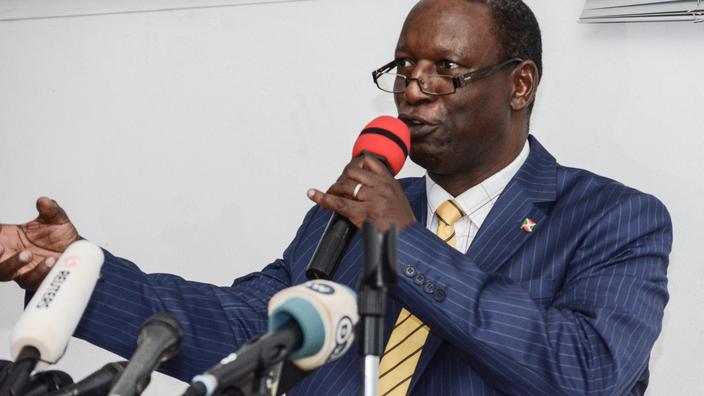A government commission in Burundi to investigate the massacres that have punctuated the history of this Great Lakes country said for the first time on Monday that those who targeted the Hutu ethnic group half a century ago fell under a
"genocide".
The Truth and Reconciliation Commission (CVR) was created in 2014 to dispense justice and help turn the page on the victims of the inter-ethnic massacres that have struck Burundi since its independence in 1962.
Read alsoHow Paul Rusesabagina, hero of the film
Hotel Rwanda
, arrived in Rwanda instead of Burundi
Its president, Pierre-Claver Ndayicariye, told parliament that the TRC was able to establish the
“crime of genocide”
against the Hutu people in 1972 under the regime of then-president Michel Micombero, a Tutsi.
He also claimed in a three-hour speech that
“crimes against humanity”
had been perpetrated against certain members of the Tutsi community at the same time.
Burundi has experienced a series of inter-ethnic massacres, which culminated in 1972, and coups d'état, the beginnings of a long civil war (1993-2006).
In 1972, a Hutu insurrection broke out against the Tutsi power. The repression quickly turns into systematic massacres of members of the Hutu elite, killing between 100,000 and 300,000 according to estimates. Witnesses told the commission that in May and June of that year, Hutus were transported by trucks every night from the prison in the administrative capital, Gitega, to the banks of the Ruvubu River, where they were executed. and thrown into pits.
According to Pierre-Claver Ndayicariye, three years of investigation made it possible to exhume the bones of nearly 19,900 people in 200 mass graves.
During these investigations, the CVR was accused of bias for having concentrated its research on sites where Hutu were buried and ignored those where Tutsi victims were.
The commission is made up almost exclusively of cadres of the ruling party, which emerged from the former main Hutu rebellion during the civil war, and Ndayicariye was head of Burundi's electoral commission during the controversial polls of 2010 and 2015. The Hutus represent 85% of the population of Burundi, against 14% for the Tutsi.

